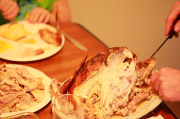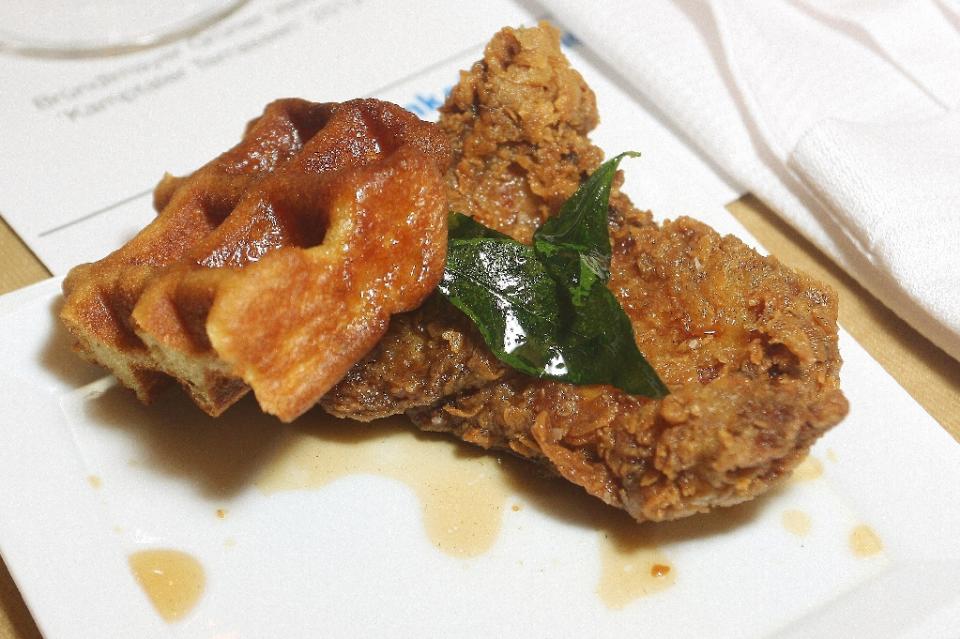
Entertainment
-
 Disney Emerges Victorious After Intense Battle
Disney has emerged triumphant in a boardroom clash against critics who had accused the media conglomerate of mishandling its streaming strategy and losing its innovative edge.04 April 2024Read More...
Disney Emerges Victorious After Intense Battle
Disney has emerged triumphant in a boardroom clash against critics who had accused the media conglomerate of mishandling its streaming strategy and losing its innovative edge.04 April 2024Read More... -
 Powerball Jackpot Reaches $975 Million Following Another Drawing Without a Big Winner
The Powerball jackpot has surged to an estimated $975 million as no one matched the six numbers drawn on Saturday night, extending a nearly three-month period without a significant01 April 2024Read More...
Powerball Jackpot Reaches $975 Million Following Another Drawing Without a Big Winner
The Powerball jackpot has surged to an estimated $975 million as no one matched the six numbers drawn on Saturday night, extending a nearly three-month period without a significant01 April 2024Read More... -
 Beyoncé: Oklahoma Radio Station Reverses Decision on Country Song After Viral Backlash Over Racism Allegation
After a fan requested a Beyoncé song on Oklahoma's KYKC radio station and was denied, citing the station's focus on country music, the situation quickly escalated.15 February 2024Read More...
Beyoncé: Oklahoma Radio Station Reverses Decision on Country Song After Viral Backlash Over Racism Allegation
After a fan requested a Beyoncé song on Oklahoma's KYKC radio station and was denied, citing the station's focus on country music, the situation quickly escalated.15 February 2024Read More... -
 Karolina Shiino: Miss Japan Steps Down Following Affair Scandal
Karolina Shiino, the Ukraine-born winner of the Miss Japan beauty pageant, has relinquished her crown after a tabloid report exposed her affair with a married man.06 February 2024Read More...
Karolina Shiino: Miss Japan Steps Down Following Affair Scandal
Karolina Shiino, the Ukraine-born winner of the Miss Japan beauty pageant, has relinquished her crown after a tabloid report exposed her affair with a married man.06 February 2024Read More... -
 Heart and Cheap Trick Unite for Royal Flush Tour Across North America
Legendary rock band Heart, inducted into the Rock and Roll Hall of Fame in 2013, is gearing up for an epic Royal Flush tour alongside special guests Cheap Trick. The extensive 52-city tour is29 January 2024Read More...
Heart and Cheap Trick Unite for Royal Flush Tour Across North America
Legendary rock band Heart, inducted into the Rock and Roll Hall of Fame in 2013, is gearing up for an epic Royal Flush tour alongside special guests Cheap Trick. The extensive 52-city tour is29 January 2024Read More... -
 Surge in American Tourism Sets Records: Switzerland Welcomes Highest Number of US Visitors in Decades
Surge in American Tourism Sets Records: Switzerland Welcomes Highest Number of US Visitors in Decades
The number of American tourists staying overnight in Switzerland surged by 20% between January and October 2023 compared to the pre-pandemic year of 2019, according to RTS01 January 2024Read More... -
 As Thanksgiving Approaches, Travelers Flood Roads and Airports Once Again
Millions of Americans have swarmed into airports and hit the highways on Wednesday as Thanksgiving Day approaches, marking the busiest travel day since the pandemic virtually halted the22 November 2023Read More...
As Thanksgiving Approaches, Travelers Flood Roads and Airports Once Again
Millions of Americans have swarmed into airports and hit the highways on Wednesday as Thanksgiving Day approaches, marking the busiest travel day since the pandemic virtually halted the22 November 2023Read More...
Economics
-
 US Senate Grapples with $1.2 Trillion Bill to Avert Shutdown, Midnight Deadline Nears
The Democratic-led U.S. Senate found itself in the throes of passing a crucial $1.2 trillion government funding bill on Friday, following its approval in the House of Representatives, whichRead More...
US Senate Grapples with $1.2 Trillion Bill to Avert Shutdown, Midnight Deadline Nears
The Democratic-led U.S. Senate found itself in the throes of passing a crucial $1.2 trillion government funding bill on Friday, following its approval in the House of Representatives, whichRead More... -
 US Producer Prices Surge, Indicating Persistent Inflation
In February, prices paid by US producers saw the most significant increase in six months, driven by rising fuel and food costs, adding to the evidence that inflation remains a pressing concern.Read More...
US Producer Prices Surge, Indicating Persistent Inflation
In February, prices paid by US producers saw the most significant increase in six months, driven by rising fuel and food costs, adding to the evidence that inflation remains a pressing concern.Read More... -
 Breaking News: Biden Administration Announces $1.2 Billion Student Debt Forgiveness for Over 150,000 Borrowers
The Biden administration announced on Wednesday its decision to forgive $1.2 billion in student debt for close to 153,000 borrowers who are part of its newlyRead More...
Breaking News: Biden Administration Announces $1.2 Billion Student Debt Forgiveness for Over 150,000 Borrowers
The Biden administration announced on Wednesday its decision to forgive $1.2 billion in student debt for close to 153,000 borrowers who are part of its newlyRead More... -
 US Senate Approves $95 Billion Aid Package for Ukraine, Israel, and Allies
The US Senate has approved a $95 billion aid package aimed at providing assistance to Ukraine, Israel, Taiwan, and Indo-Pacific allies. Despite facing criticism fromRead More...
US Senate Approves $95 Billion Aid Package for Ukraine, Israel, and Allies
The US Senate has approved a $95 billion aid package aimed at providing assistance to Ukraine, Israel, Taiwan, and Indo-Pacific allies. Despite facing criticism fromRead More... -
 Surprising Surge in US Jobs for January Defies Economic Predictions
The US job market continues to outperform expectations, with a robust increase of 353,000 jobs in January, confounding predictions of an economic slowdown. Average hourly pay alsoRead More...
Surprising Surge in US Jobs for January Defies Economic Predictions
The US job market continues to outperform expectations, with a robust increase of 353,000 jobs in January, confounding predictions of an economic slowdown. Average hourly pay alsoRead More...
Fashion
-
 Costco Offers Affordable Version of Anthropologie Mirror, Sparking Social Media Buzz
Costco shoppers are buzzing about a floor mirror that closely resembles a luxury mirror from Anthropologie but comes with a significantly lower price tag. The Anthropologie Luisa Mirror, pricedRead More...
Costco Offers Affordable Version of Anthropologie Mirror, Sparking Social Media Buzz
Costco shoppers are buzzing about a floor mirror that closely resembles a luxury mirror from Anthropologie but comes with a significantly lower price tag. The Anthropologie Luisa Mirror, pricedRead More... -
 City Council Commemorates Hispanic Heritage Month
This year, the Councilors acknowledged Hispanic leaders in Boston for their hard work, leadership and commitment to their communities. Recipients were awarded the Pilares de la HispanidadRead More...
City Council Commemorates Hispanic Heritage Month
This year, the Councilors acknowledged Hispanic leaders in Boston for their hard work, leadership and commitment to their communities. Recipients were awarded the Pilares de la HispanidadRead More... -
 Hermès Resolves Patent Dispute with Skechers over Shoe Soles in New York
Hermès International SCA HRMS.PA, the French luxury fashion house, has settled a lawsuit brought by Skechers USA Inc SKX.N regarding alleged patent infringementRead More...
Hermès Resolves Patent Dispute with Skechers over Shoe Soles in New York
Hermès International SCA HRMS.PA, the French luxury fashion house, has settled a lawsuit brought by Skechers USA Inc SKX.N regarding alleged patent infringementRead More... -
 Diamond Prices Firm After Supply Declines
Diamond trading was seasonally slow in December as the industry’s focus shifted to retail and as diamantaires took their end-of-year break. Sentiment received a boost from strong holidayRead More...
Diamond Prices Firm After Supply Declines
Diamond trading was seasonally slow in December as the industry’s focus shifted to retail and as diamantaires took their end-of-year break. Sentiment received a boost from strong holidayRead More... -
 Protesters target Polanski film at cinemas in Brussels
Feminist activists defaced cinemas in Brussels with angry condemnations of director Roman Polanski's latest film overnight on Tuesday and Wednesday.Read More...
Protesters target Polanski film at cinemas in Brussels
Feminist activists defaced cinemas in Brussels with angry condemnations of director Roman Polanski's latest film overnight on Tuesday and Wednesday.Read More... -
 London Latino heartlands struggle for survival
Whenever London's South Americans go looking for a job, a helping hand, the flavours of home or a party with their compatriots, they head to the Latino indoor marketRead More...
London Latino heartlands struggle for survival
Whenever London's South Americans go looking for a job, a helping hand, the flavours of home or a party with their compatriots, they head to the Latino indoor marketRead More... -
 Tutankhamun sculpture’s London auction sparks Egyptian outcry
A 3,000-year-old head sculpture of an eternally-young Tutankhamun — the Egyptian pharaoh known as King Tut — goes under the hammer this week in London despite an outcry from Cairo.Read More...
Tutankhamun sculpture’s London auction sparks Egyptian outcry
A 3,000-year-old head sculpture of an eternally-young Tutankhamun — the Egyptian pharaoh known as King Tut — goes under the hammer this week in London despite an outcry from Cairo.Read More... -
 Four top British authors in novel anti-Brexit European crusade
Ken Follett, Lee Child, Kate Mosse and Jojo Moyes, four heavyweights of British literature, are launching a "Friendship Tour" of Europe to represent the 48 percent whoRead More...
Four top British authors in novel anti-Brexit European crusade
Ken Follett, Lee Child, Kate Mosse and Jojo Moyes, four heavyweights of British literature, are launching a "Friendship Tour" of Europe to represent the 48 percent whoRead More... -
 Zombies and women: London Men's Fashion Week wraps up
Models in zombie make-up and a growing number of women on the catwalks were among the eye-catching features of Men's Fashion Week, which wrapped up inRead More...
Zombies and women: London Men's Fashion Week wraps up
Models in zombie make-up and a growing number of women on the catwalks were among the eye-catching features of Men's Fashion Week, which wrapped up inRead More...

Most Read
- Greece hails new post-bailout chapter but concerns remain
- Fatal Alligator Attack Claims Life of 69-Year-Old Woman in South Carolina
- 34th Conference on the Holocaust and Genocide, Millersville University of Pennsylvania
- Design Museum turns old London icon into new global hub
- Game over? Computer beats human champ in strategy challenge
Entertainment

Norwegian designer Peter Dundas spearheaded a youthful revolution in Milan on Saturday, laying out his new vision for Roberto Cavalli as other top brands also embraced rejuvenation.
The Cavalli collection was one of the most eagerly awaited of the week, being the first to take place without the company's eponymous founder who has ceded control to a private equity group.
They brought Dundas in from Emilio Pucci and the Norwegian did not waste any time in signalling a dramatic break with the past.
The rock and roll edge to the brand and its sensual, sexy core remained intact but there was some carping in the Italian media that something of its essence had disappeared.
"The new start signals the end of glamour," reported La Repubblica, although its review was broadly favourable and noted that it was too early to say if Dundas was going to give Cavalli the kind of fillip enjoyed by Gucci since Alessandro Michele took the reins there at the start of the year.
The biggest change came with the virtual axing of red carpet-style night gowns from the collection in favour of lighter and more easy-to-wear nightwear such as one ultra-short dress featuring a long train.
Alongside that there was a range of accessible denim items featuring frills, tie dye and chain fringes.
- Maintaining Cavalli's soul -
"My first task since arriving here has been to think of something different that still maintains the soul of Roberto Cavalli," Dundas said.
"Today's women are freer and looking for easier, perhaps more sporty clothes."
Relaxed, comfortable clothes were also in vogue at Bottega Veneta, which put together a very sporty collection featuring high-tech jogging pants, hooded sweatshirts and fitted gilets.
Creative director Tomas Maier took inspiration from sailing for evening dresses made from a single piece of fabric modelled on a length of sail and held together by what looked like nautical rope.

A popular campground at Yosemite National Park in California will be temporarily closed after several dead squirrels were found to be carrying the plague, officials said.
The move comes about a week after a girl who visited the park tested positive for the plague. She was treated and has recovered.
"As an extremely precautionary public health measure, flea treatment will be applied to rodent burrows in Tuolumne Meadows Campground because several dead animals were tested and found to be carrying plague," park officials said in a statement.
The campground will be closed from August 17-21. The park itself will remain open, including all the other campgrounds.
Plague is carried by squirrels, chipmunks and other wild rodents and their fleas.
"By eliminating the fleas, we reduce the risk of human exposure and break the cycle of plague in rodents at the sites," said Karen Smith, the director and state health officer for the California Department of Public Health.

People who eat lots of fried food and sugary drinks have a 56 percent higher risk of heart disease compared to those who eat healthier, according to US researchers.
The findings in Circulation, a journal of the American Heart Association, were based on a six-year study of more than 17,000 people in the United States.
Researchers found that people who regularly ate what was described as a Southern style diet -- fried foods, eggs, processed meats like bacon and ham, and sugary drinks -- faced the highest risk of a heart attack or heart-related death during the next six years.
"Regardless of your gender, race, or where you live, if you frequently eat a Southern-style diet you should be aware of your risk of heart disease and try to make some gradual changes to your diet," said lead researcher James Shikany, a nutritional epidemiologist at the University of Alabama at Birmingham's Division of Preventive Medicine.
"Try cutting down the number of times you eat fried foods or processed meats from every day to three days a week as a start, and try substituting baked or grilled chicken or vegetable-based foods."




















